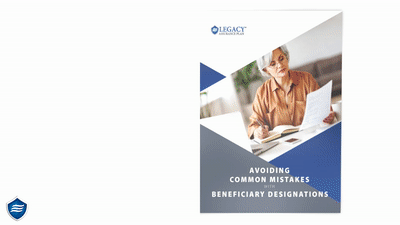When a person passes away, their legacy and material possessions – collectively known as their estate – enter a critical phase. The estate, encompassing everything from financial accounts and real estate to personal belongings, must be managed meticulously and, ultimately, passed on according to the decedent's wishes. This complex and sensitive task falls upon the shoulders of a key figure: the personal representative.
The role of a personal representative, sometimes known as an executor or administrator, is not just a title, but a responsibility laden with legal and moral obligations. They are often named in the last will and testament by the deceased; however, in cases where no will exists, a probate court may appoint a personal representative.
One of the first and most crucial tasks of a personal representative is to locate and secure all assets of the deceased. This process involves more than just identifying bank accounts or property. It also extends to uncovering insurance policies, stocks, bonds and even digital assets.
Equally important is the responsibility to settle any outstanding debts and obligations. The personal representative must ascertain all liabilities the deceased might have, from mortgages to credit card debts, and ensure they are paid from the estate's assets. This step is vital, and legally precedes the distribution of assets to the beneficiaries.

The ultimate goal of the personal representative is to distribute the remaining assets among the beneficiaries as stipulated in the will, or according to the state's intestacy laws (where no valid will is present). This task requires a high level of fairness and precision, especially in scenarios where the will's instructions are complex or the beneficiaries have conflicting interests.
The personal representative also acts as the point of contact between the estate and the legal system. They are required to navigate various legal processes, which may include filing the will in probate court, managing estate taxes and addressing any legal disputes that arise during the administration process.
Perhaps the most profound duty of a personal representative is to ensure that the final wishes of the deceased are honored with respect and integrity.
One of the fundamental responsibilities of a personal representative is to maintain a strict separation between their personal finances and those of the estate they are managing. The personal representative has a fiduciary duty to act in the best interests of the estate and its beneficiaries, a standard that demands both integrity and impartiality.
Blurring the lines between personal and estate finances can have serious legal repercussions. Commingling of funds can be misconstrued as mismanagement or, worse, misappropriation of estate assets. This can lead to legal challenges from beneficiaries or creditors, potentially resulting in personal liability for the personal representative. In severe cases, it can even lead to accusations of fraud or embezzlement, tarnishing the personal representative's reputation and leading to legal penalties.
How can a personal representative maintain transparency and accountability?
The opening of a distinct estate account facilitates a transparent record of all transactions involving estate funds, from the payment of debts and taxes to the distribution of assets to beneficiaries. It enables beneficiaries and the court to easily trace all financial movements, ensuring that the personal representative is fulfilling their duties responsibly.
By keeping estate funds separate, a personal representative not only adheres to legal requirements but also protects themselves from potential accusations of financial mismanagement. Clear and transparent records are the best defense against any claims of impropriety.
Clear financial separation also serves to protect the interests of the beneficiaries. It ensures that their inheritance is not wrongfully diminished or jeopardized by the personal financial affairs of the personal representative.
A separate account simplifies financial management and record-keeping

An estate account consolidates all incoming and outgoing financial activities associated with the estate. This includes depositing income, such as dividends, rent or other earnings, and paying out expenses like debts, taxes and administrative costs. By having a single account for these transactions, the personal representative can efficiently manage the estate's financial dealings without the complexity of tracking multiple accounts or mingling personal funds.
An estate account can provide a clear and concise record of all transactions. This is especially crucial when the estate is subject to probate, where the personal representative must present a detailed accounting to the court.
Beneficiaries of an estate also have a vested interest in understanding how the estate is being managed. An estate account makes it easier for the personal representative to provide transparent accounting to beneficiaries, detailing how assets have been managed, debts settled and distributions planned.
Estate administration involves various tax and legal obligations. An estate account aids in fulfilling these duties by providing a straightforward way to track taxable income and deductible expenses. It helps in accurately determining estate tax liabilities and ensuring timely payments, thus maintaining compliance with state and federal tax laws.
Proper tax filing and compliance protect the estate from potential penalties, interest charges and legal disputes. An estate account ensures that taxes are calculated based on complete and accurate information, reducing the risk of errors that could lead to disputes with tax authorities or beneficiaries.
An estate account enhances transparency and accountability
The establishment of an estate account is a vital step in fostering transparency and accountability in the management of estate funds. In the delicate and often emotionally charged process of estate administration, maintaining the confidence and trust of all parties involved is crucial. An estate account serves as a transparent platform for financial transactions, which is essential in minimizing disputes among beneficiaries and ensuring a smooth administration process.
How can beneficiary disputes be avoided?

Estate settlements can sometimes lead to disagreements or disputes among beneficiaries, particularly in situations where the division of assets is complex or the beneficiaries’ expectations differ. An estate account acts as a factual record that can help mitigate these disputes. By providing beneficiaries with a transparent view of how the estate’s funds are managed and distributed, misunderstandings and suspicions can be alleviated. This openness helps to maintain harmony among beneficiaries and supports a more amicable resolution process.
How can payment of the estate’s expenses be streamlined?
Efficient management of an estate's financial obligations is a key responsibility of a personal representative. An estate account plays a crucial role in this regard by organizing and simplifying the process of paying debts and managing ongoing expenses. This systematic approach not only ensures legal compliance but also eases the administrative workload on the personal representative.
Upon the death of an individual, their estate may be liable for various debts, ranging from personal loans and credit card debts to mortgages and other obligations. The estate account provides a central point for aggregating funds from the estate's assets, which can then be used to settle these debts. The estate account enables the personal representative to prioritize these debts according to legal requirements, ensuring that creditors are paid in an orderly and timely manner.
In addition to settling debts, the personal representative is also responsible for handling ongoing expenses related to the estate. These can include costs for maintaining property, utility bills, insurance premiums and other administrative expenses. The estate account allows for the efficient management of these expenses by centralizing the payment process.
Does an estate account ease the distribution of assets to beneficiaries?

The distribution phase in estate administration is often the most anticipated yet sensitive stage, where the assets of the deceased are finally transferred to their designated beneficiaries. An estate account significantly streamlines this process, ensuring a systematic and fair approach to asset distribution.
After all debts, taxes and administrative expenses have been settled, the remaining assets in the estate account are ready for distribution to the beneficiaries as outlined in the will or, in the absence of a valid will, according to state intestacy laws. But before assets can be distributed, it is vital to ensure that all of the estate's financial obligations have been met. This includes paying off debts, covering funeral expenses and settling any taxes due. The estate account plays a key role here, as it centralizes the funds from which these obligations are paid.
The primary purpose of an estate account in the distribution phase is to facilitate an equitable and organized transfer of assets. With the clarity provided by the estate account, beneficiaries can see that the distribution is being carried out according to the directives in the will or by legal succession. This transparency helps to maintain peace among beneficiaries and upholds the integrity of the estate administration process.
One of the more challenging aspects of estate administration can be handling disputes or disagreements among beneficiaries regarding the distribution of assets. The clear and detailed accounting provided by an estate account can significantly reduce the likelihood of such disputes. Beneficiaries are more likely to feel confident in the fairness of the process when they can see a transparent record of how assets have been allocated and distributed.
Providing legal and financial protection
The role of a personal representative in managing an estate comes with significant responsibilities, and with it, the potential for legal and financial risks. An estate account serves as a vital tool in mitigating these risks, providing a clear boundary between the personal representative’s finances and those of the estate, which is essential for both legal protection and financial clarity.
One of the primary functions of an estate account is to establish a distinct separation between the personal representative’s finances and the estate’s funds. This separation is crucial in avoiding the commingling of assets, a practice that can lead to allegations of mismanagement or misuse of estate funds. By keeping estate funds in a dedicated account, the personal representative can clearly demonstrate that all financial decisions and transactions are made solely for the benefit of the estate and its beneficiaries, adhering to their fiduciary duty.
In the realm of estate administration, the risk of personal liability for a personal representative is a serious concern. Mistakes or missteps in managing the estate’s assets can lead to legal challenges, potentially holding the personal representative personally liable for losses to the estate. An estate account helps to reduce this risk by providing a transparent and traceable record of all financial transactions. This transparency not only aids in the proper management of the estate but also serves as evidence of the personal representative’s diligence and adherence to legal obligations, thereby protecting them from potential liability claims.
An estate account also serves to protect the personal representative’s finances from being entangled in the estate’s financial affairs. Without this clear separation, personal assets could be inadvertently exposed to estate debts and obligations. The estate account functions as a safeguard, ensuring that the personal representative's personal financial health is not compromised by their role in administering the estate.
Conclusion
Opening an estate account is a fundamental step for a personal representative. It is critical for ensuring clear financial separation, simplifying management and record-keeping, facilitating tax compliance, enhancing transparency, streamlining debt payments, easing asset distribution and providing legal protection. The estate account is more than just a financial tool; it is an embodiment of the personal representative's commitment to fulfilling their duties with integrity and efficiency, upholding the trust placed in them to manage and distribute the deceased's estate in accordance with their final wishes.



